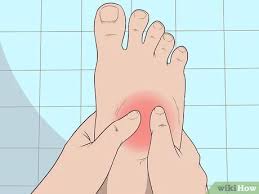Stress Fractures
What is a stress fracture?
A stress fracture is a small crack or microfracture in a bone that forms from gradual repeated stress and overuse. This is different to a conventional fracture or bone break that occurs because of a singular traumatic event. Stress fractures are most common in the feet with the metatarsals being the most common bones affected. The navicular and occasionally the calcaneus are among some of the other bones that can be impacted in the feet.


How do I know if I have a stress fracture and what do they feel like?
Stress fractures occur gradually over time building up through repeated use because of this they are most common in active populations like athletes and runners. As stress fractures come on slowly people experiencing one will normally describe gradually worsening pain that feels like a deep dull ache that has worsened over several weeks or months. The pain will normally get worse as the day wears and is aggravated through exercises.
Some risk factors that are often present in people who have stress fractures are:
- Recent increases in exercise loads
- Large volumes of walking and or running
- Lots of walking on hard surfaces
- People with weaker bones due to conditions like osteoporosis or osteopenia
In most cases though if we believe you may have a stress fracture we will organise imaging scans like an xray, CT scan, bone scan or MRI. This makes sure you find out exactly the cause of your pain.
How do you treat a stress fracture?
Stress fractures are treated initially through rest. This can be done by reducing activity, using a moon boot or moving around on crutches for a while.
We may also try and speed up the healing processing using K laser therapy to stimulate blood flow and bone healing.
After the pain is reduced gradual reloading of the foot will begin by building up slowly to a full return to normal activity. Perhaps most importantly during this return to activity process we will also assess your walking and running to try and discover the reason the stress fracture occurred in the first place and address the origin cause.
This might be done through changing your exercise regime, changing your footwear or using orthotics. This approach of rest, gradual return to activity and identification of the original cause gives you the best chance of getting better and staying better.


How long will my stress fracture take to get better?
The answer to this question depends on the area affected and the severity of the stress fracture but in most cases this will be somewhere between 4-12 weeks. Our team will guide you on the timeline once they know the extent of your injury.
